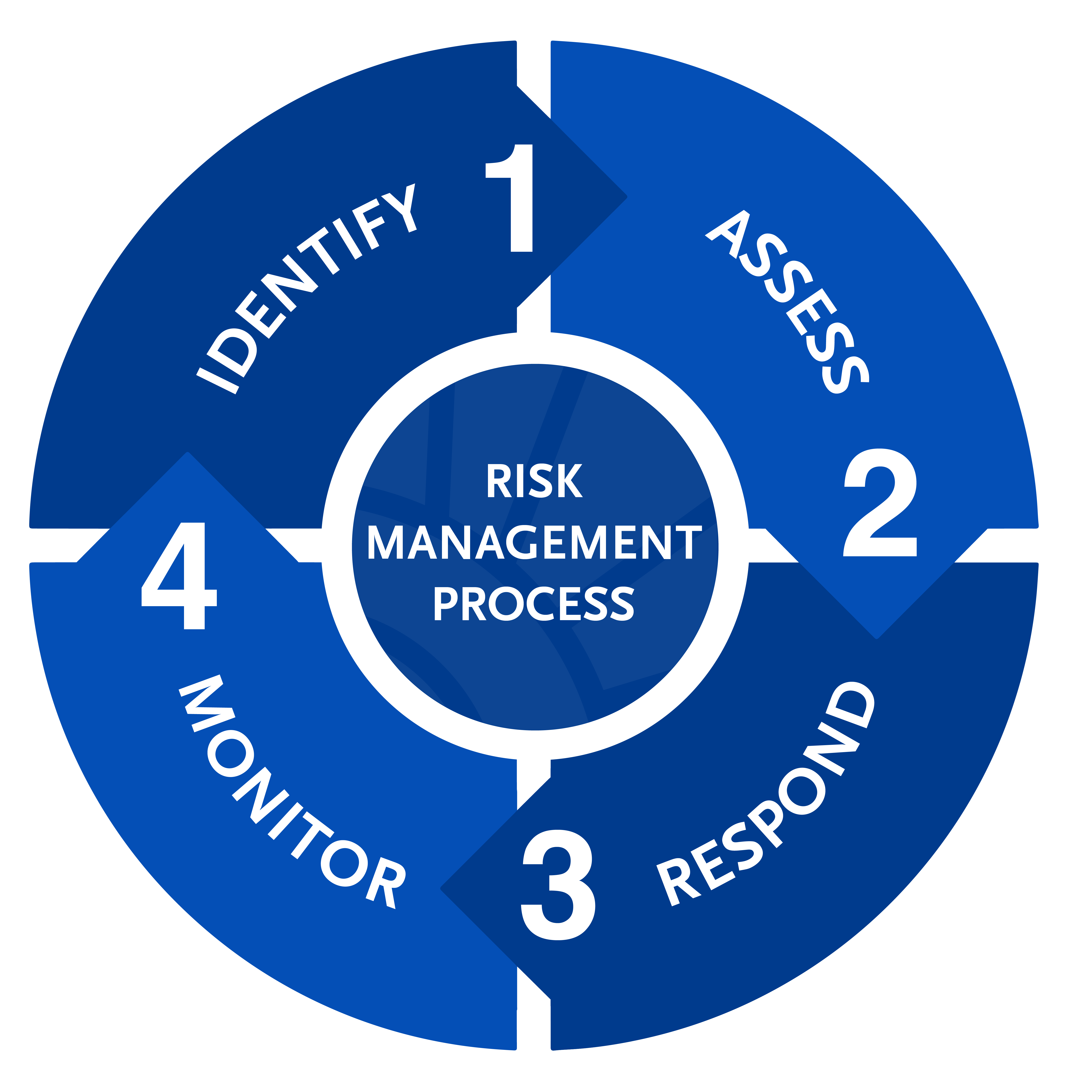As our society and culture evolve, ministries must adapt and navigate new challenges, such as budget constraints, threats of violence, and increasing litigation. While anticipating the unexpected may seem daunting, it’s essential to develop a Risk Management plan to ensure your ministry can focus on sharing the gospel and spend less time dealing with disaster.
Ministry Risk Management is the process of identifying and planning for risks that could impact your faith-based organization. It is a comprehensive approach to stewardship that considers risks to your people, finances, reputation, as well as compliance with the law.
Risks to your ministry tend to fall into 4 categories:
People Risk: Your top concern should be risks to the safety and well-being of your congregation and staff. This can include their physical safety, security, mental wellness, and spiritual health. This risk can be managed by investing through security and child safety.
Financial Risk: These are the events that could create financial liability or hardship for your organization, such as lawsuits, property damages, and income interruption. The best protection against this type of risk is usually your insurance policy.
Legal Risk: Staying informed about important legislation and maintaining proper governance to protect your religious freedom and prevent legal violations. This can include implementing state mandated child safety requirements, as well as avoiding secular employment documents that undermine your rights as a faith based employer.
Reputational Risk: Failure to plan and respond correctly not only damages your ministry’s reputation, it can hurt the reputation of the gospel you advance. By prioritizing risk management, you’ll show your community that you value the safety and wellbeing of everyone who comes into your doors.
Ultimately, Risk Management is an ongoing and iterative process. Risk is a constant aspect of ministry, and should be continuously evaluated and discussed as your plan matures.

Examine all areas of your ministry and consider ‘what-if’ scenarios that could cause harm. Involve your team, congregants, and network with other ministry leaders to gain different perspectives. You may also consider bringing in an expert, such as a risk management consultant or your local ChurchWest advisor, to guide you.
Consider the likelihood and potential impact of each risk, prioritizing those with the highest impact.
Remember, the likelihood of risk increases as you perform the activity more often. For example, the likelihood of a trip and fall during your Sunday service is greater if you have 200 people in attendance compared to 50. It’s important to consider risks in terms of their greatest potential damage, as well as how your unique operations may make some risks increase or decrease in likelihood.
There are several ways your ministry can respond to an risk:
Avoid: If you decide the risk of an activity is too great, you may decide to cancel the activity all together. For example, if you’re afraid of legal risks caused by mishandling payroll, you may decide to outsource your payroll processing to an outside vendor.
Prevent and Mitigate: You may decide that certain risks require dedicated attention and prevention, such as ensuring a safe environment for your youth. Implementing background checks and mandated reporter training are examples of response strategies to manage your ministry’s risk.
Transfer: This means your insurance policy. While insurance is the most widely understood option for managing risk, it’s not the only option. It’s important to review all your insurance coverage, and make sure that your policy integrates with your broader operations and risk management strategy.
Continuously review and update your Risk Management plan, seeking feedback from stakeholders, employees, and others within your network to implement best practices and maintain accountability. Ultimately, you should aim to create a leadership culture that views risk management as a component of biblical stewardship.
Developing a comprehensive Risk Management plan is vital to ensure the safety and success of your ministry in a rapidly changing world. With prayer and wisdom, you can use this process to bring a higher level of stewardship to your ministry. Ultimately, you’ll play a part in shaping leadership culture that fulfills the responsibility of shepherding God’s people and resources.

Charlie Cutler is the President of ChurchWest Insurance Services, a California-based agency that specializes in providing insurance solutions to churches and related ministries. Charlie has been with ChurchWest for over 20 years and has extensive experience in the insurance industry, with a particular focus on the unique risks and challenges facing Christian organizations. Charlie is a sought-after speaker and has presented at numerous conferences and seminars on insurance and risk management topics.
Sign up for the ChurchWest newsletter to stay up to date on all our latest content, webinars and event announcements.